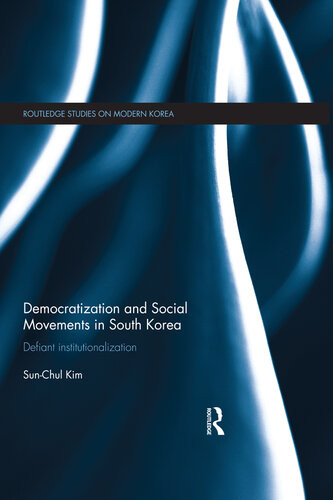

Most ebook files are in PDF format, so you can easily read them using various software such as Foxit Reader or directly on the Google Chrome browser.
Some ebook files are released by publishers in other formats such as .awz, .mobi, .epub, .fb2, etc. You may need to install specific software to read these formats on mobile/PC, such as Calibre.
Please read the tutorial at this link: https://ebookbell.com/faq
We offer FREE conversion to the popular formats you request; however, this may take some time. Therefore, right after payment, please email us, and we will try to provide the service as quickly as possible.
For some exceptional file formats or broken links (if any), please refrain from opening any disputes. Instead, email us first, and we will try to assist within a maximum of 6 hours.
EbookBell Team

5.0
70 reviewsSouth Korea provides an intellectual challenge in the fields of social movements and democracy in that intense mobilization and the strong influence of social movements have accompanied steady democratization for more than two decades, despite major theories having predicted otherwise.
This book examines how social movements in previously authoritarian contexts evolve after democratic transition, **** using South Korea as a case study. It explores how democratic change influences the form of social movements, and how social movements affect the pace and direction of democracy in turn. It explains how South Korean social movements were able to attain strong political influence by focusing on four causal factors: the configuration of major political actors during the transition period, the relational dynamics among social movement groups, the relationship between social movements and institutionalized political actors, and the impact of transnational forces in the post-transition period. Unlike previous scholarship, the book takes a historical, actor-centered, and process-oriented approach that closely follows the interactions among contending actors through event sequences, rather than being driven by abstract theoretical frameworks. In doing so, it analyses uses a broad range of evidence, including police records, untapped activist documents, presidential memoirs, newspaper accounts and original data sets.
Shedding light on the complex political reality that gave rise to a contentious civil society in South Korea after democratization, this book also illuminates the institutional conditions that can help promote domestic peace and stability. Therefore it will be of great use to students and scholars of Korean Studies, Korean politics and social movements, as well as policy makers.